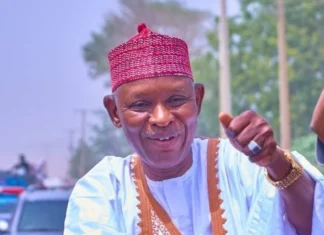By LaBode Obanor
The struggles of the average African person in Nigeria are incomparable to that of the African American person in America. Their social and economic experiences are different.
Recently, we saw the world join the African Americans to protest an unjust police culture, unbeknownst to many around the world, this extant approach for demanding change is unknown.
The African Americans have perfected this method for decades. It is reminiscent of how they achieved historical, much-talked-about civil rights laws of the 1960s. They have successfully utilized this approach whenever their existence is threatened. Be it in areas of economic, civil, or social justice. They have used this process to demand change and make government work better for them.
From the early 1980s when Nigeria started experiencing massive brain drain to the diaspora, Nigerians have done scanty protests, or no protest, against oppressive governments. They have not objected to their mistreatments through collective public outcry, partly because their families in the diaspora have aided their survival.
It is difficult to find a southerner in Nigeria who does not have a relative outside of Nigeria supporting him or her.
It is also not uncommon to see one diasporan supporting an average of 2 to 4 persons. Multiply that by the millions outside of Nigeria, and you can quickly see why many folks within Nigeria do not think resistance is worth a life. But no effective change can come unless some sacrifices are made.
Besides, many Nigerians are also entrepreneurs; using little funds the diaspora sends them to start a trade or business. A number of them do well as a result, and a significant number even do much better than the diasporans who fund their lifestyles.
So, many in the diaspora wonder why there is no urgency to resist a cruel and unresponsive government, in spite of the pleas from home and abroad. But why would there be urgency? If when in need, at the asking, a credit alert to their bank accounts shows up on their phone from a diasporan family member. If the diasporan thinks there is pervasive indolence and reluctance to take to the street to challenge obvious misrule, or the unwillingness to charge against the continuous plunder of the people’s commonwealth, then the diasporans contributed to this malaise, and are therefore accessory to the conditions of the current state of the nation, albeit, with good intentions.
With billions of dollars in remittances, Nigerians in the diaspora have made life a little more bearable for many Nigerians in the homeland; thus, they see no urgency to protest or challenge their victimization.
The urgency and clamor for change are principally coming from outside of Nigeria and not from within. But the reverse should have been the case.
In aggregate, we can infer that the existence of Nigerians in the homeland is not yet threatened, consequently, complacency sets in.
However, be assured that the windfall from the diaspora will not be in perpetuity. When the time comes when the spigot dries up, Nigerians in the homeland will recognize the gravity of their situation, and at that time, they will have no choice but to rise up and break the chains of oppression off their necks. Conversely, and to speed up the process, many have advocated that the diasporan turn on the heat by slowing down the cash flow and remittances. A hard sell, but a necessary temporary remedy to induce urgency.
The courage and urgency to take to the street and challenge a palpable economic and social strangulation should not only come from the diaspora but must be led from within Nigeria.
May the labor of our heroes’ past never be in vain.
LaBode Obanor is a financial expert at Banor Associates in New York area












You speak the truth.